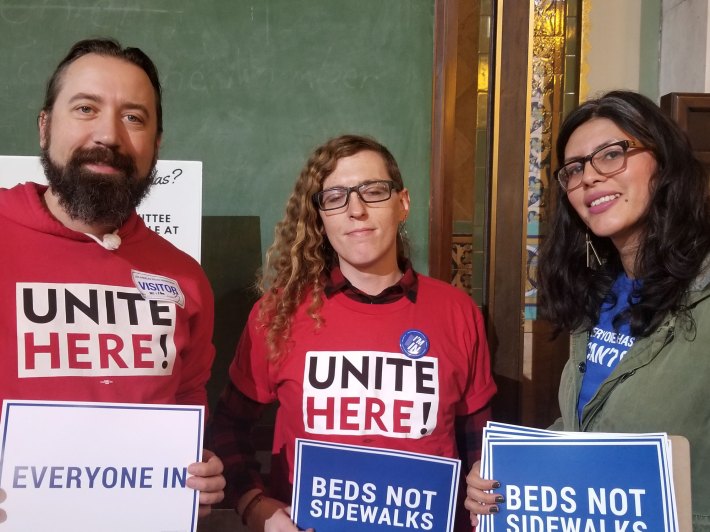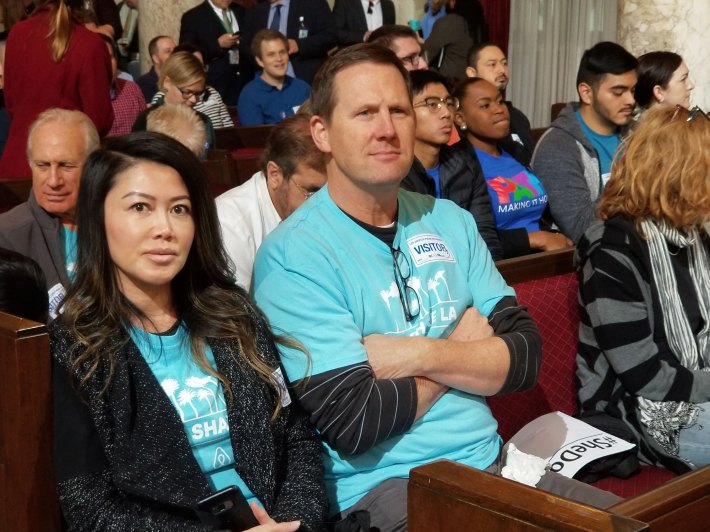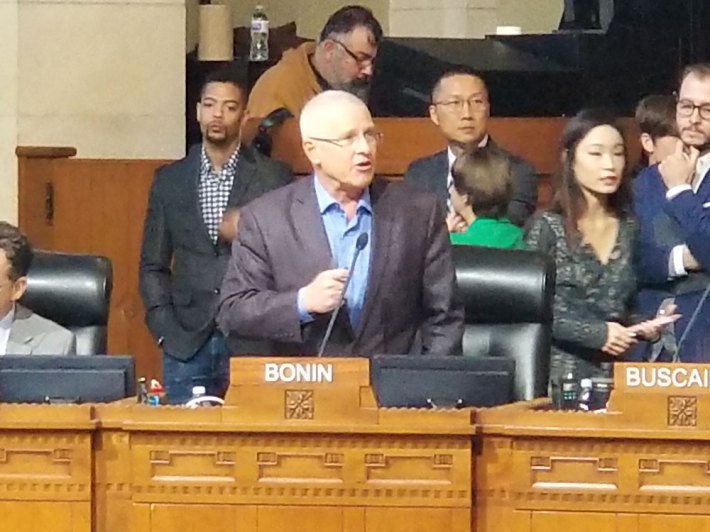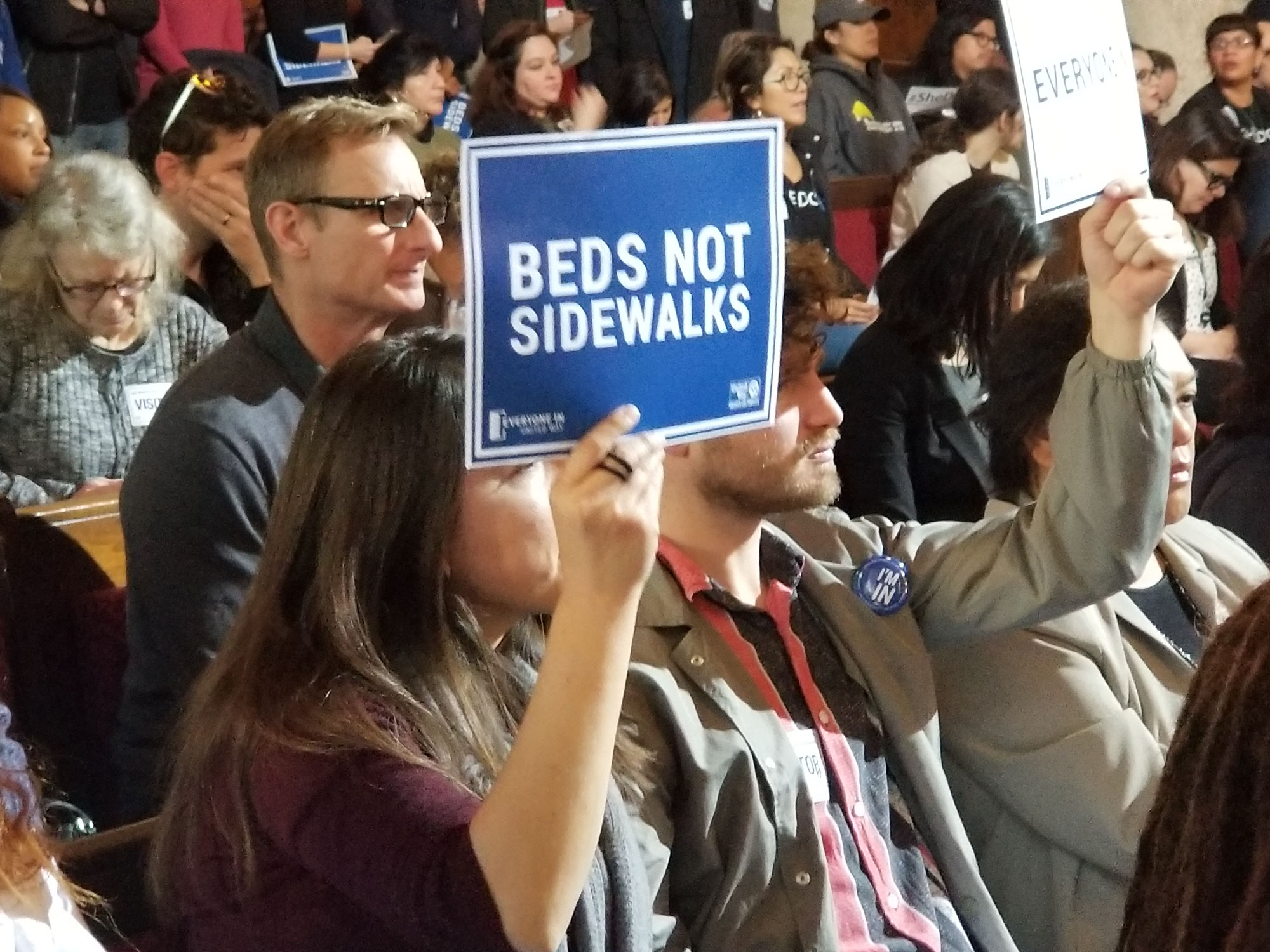[dropcap size=big]A[/dropcap]fter more than three years of debate — including an 11th hour plot twist — the Los Angeles City Council voted unanimously in favor of new restrictions on Airbnb-style short-term rentals.
The City Council stripped from the proposed new ordinance a controversial tweak that would have essentially allowed people to host short-term rentals in other properties besides their primary residence. Today’s vote sends that and two additional amendments back to the Planning & Land Use Management Committee, to be re-worked as a stand-alone ruling.
The new rules passed Tuesday will limit short-term rental to only primary residences and block rent-controlled units from Airbnb, and other similar platforms. The rules apply throughout the entire city, including tourist hot spots such as Venice and Hollywood. They take effect in July.

“Please take immediate action to protect the [Rent Stabilization Ordinance] and housing not just for me and my mom, but for every tenant facing eviction,” said Diana Cruz during public comment. Cruz, a Koreatown resident, said her landlord is trying to evict her and her mother from their apartment, and blames lucrative short-term rentals for it.
Many supporters of the Airbnb ordinance were clad in matching red T-shirts and members of Unite Here Local 11. Opponents were Airbnb hosts and wore contrasting olive blue T-shirts. The opposing camps crowded into City Council chambers Tuesday, leaving standing room only. They lined up to lob arguments during the public comment period.
“Citizens, stop blaming socially responsible homeowners for the housing crisis,” said Robin Cole, a resident of Council District 8 during public comment. Another opponent of the new ordinance, Brian Burke, said he’s never been on food stamps or welfare, but when he lost job he couldn’t make ends meet. “I am 56 years old and Airbnb is my job,” he said.

Under the rules, hosts will be allowed to rent out only their primary residences, defined as the place where a host lives for more than six months of the year.
Hosts will also be limited to renting their residences for 120 days a year, unless they get special approval from the city and pay extra fees. Temporary and “non-residential” structures, such as tents, trailers and RVs are also banned. Hosts also have to register with the city and pay an annual fee.
“We support what home sharing was intended to be. What we oppose is entire apartment buildings being transformed into what amounts to illegal motels,” said Charlie Carnow, a Unite Here Local 11 organizer. “Going forward, we hope the city maintains the prohibition on short-term rentals in RSO units and continues to limit short-term rentals to primary residents.”

The new regulations would still accommodate hosts who share their homes “to make their ends meet,” Bonin said. They would only restrict what he described as “bad short-term rentals,” and owners of multiple homes or whole apartment buildings and transform them into “rogue hotels.”
“One issue which was core to us was the question of affordable housing and housing instability,” said Councilman Mike Bonin who, along with Council President Herb Wesson, had introduced the subject three and a half years ago. “There is a phenomenon of de facto hotels coming in, evicting large amounts of people, having a tremendous impact upon the housing inventory in a number of communities.”
The unanimous vote in favor of the restriction was definitely perceived as a setback by Airbnb hosts at City Hall on Tuesday. Five declined to comment on the record when asked as they sulked out of City Hall for a post-vote huddle session. Reporters were not invited.
RELATED: Mayor Shut Down: Shouting Housing Activists Force Garcetti to Cut Short Speech at USC







